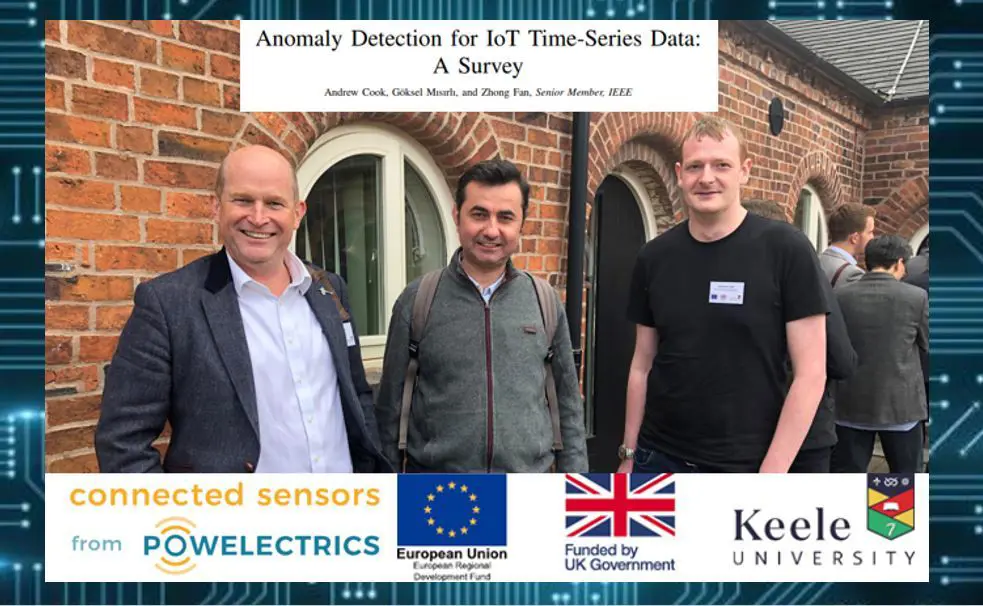Congratulations To Andrew Cook On His Academic Success Researching Anomaly Detection!
Congratulations to PowTechnology’ sponsored PhD student, Andrew Cook on publishing his initial paper on anomaly detection and already achieving eight citations for his ground-breaking work as part of the Keele University Smart Energy Network Demonstrator (SEND) project!
Anomaly detection is a problem with applications for a wide variety of domains. It involves the identification of novel or unexpected observations or sequences within the data being captured.
The majority of current anomaly detection methods are highly specific to the individual use-case, requiring expert knowledge of the method, as well as the situation to which it is being applied.
The IoT, as a rapidly expanding field, offers many opportunities for this type of data analysis to be implemented. However, due to the nature of the IoT, this may be difficult.
Andrew’s review provides a background on the challenges which may be encountered when applying anomaly detection techniques to IoT data, discusses a range of existing approaches and identifies potential research opportunities.
Dave Oakes, PowTechnology MD, told us “We are delighted to be part of Keele’s ambitious SEND Smart Energy programme and particularly proud of Andrew’s work. The end result should be a software model that will detect and identify anomalies in time series data sets from IIoT devices, such as sensor data coming from our Metron telemetry hardware. I am excited that this combination of academic prowess and our own 30 years of commercial experience developing digital transformation solutions will allow us to remain at the forefront of IoT design and incorporate AI into future solutions.”
In order to test the model, PowTechnology would welcome data sets from a range of different situations. Ideal data would be:
- Indexed to indicate when something was wrong
- With sensor scaling information
- With flags telling the model which data to ignore eg) false readings for a known reason ie) when a train is in for service.
Keele University’s ground-breaking SEND programme is a European first … a world-class demonstrator facility for smart energy research and development in a life-size laboratory!
Keele is working collaboratively with partner companies to develop and assess a wide range of innovative technologies, aimed at reducing energy usage and cost … and saving around 4,000 tonnes of carbon dioxide each year!
Over five years, Keele University campus will effectively become an ‘at scale living laboratory’ The campus is an ideal test site. It is the size of a small town and with the same diverse range of activities and facilities. The 600 acre site has 341 buildings, 3100 students in halls of residence, 1000 commercial users on the Science and Innovation Park, 200 ‘standard’ domestic households and academic activities serving 10,000 students.
We’d love to hear from you!

